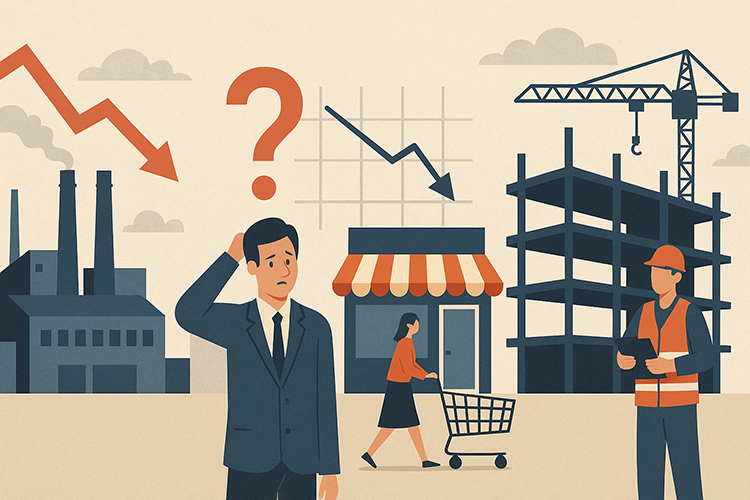Polish Economy Shows Mixed Signals in August and September 2025
Recent data from Statistics Poland offers a complex picture of the country’s economic performance, highlighting falling industrial prices, moderate retail growth, sectoral weakness in business sentiment, and steady increases in construction costs.
In industry, producer prices in August 2025 fell by 1.2% year-on-year and by 0.4% compared with July . Mining and quarrying recorded the sharpest declines, particularly coal and lignite, where prices dropped by 23% annually . Manufacturing also weakened, with notable falls in petroleum-related goods, though tobacco products saw a modest rise. This marks a continuation of a downward price trend seen since mid-2023.
The business climate survey for September 2025 indicated mixed confidence across sectors. Manufacturing (–6.5) and construction (–5.3) were the most pessimistic, both below their long-term averages. Retail trade also posted a negative reading (–2.4), while wholesale was nearly flat (–0.1). By contrast, transport (+1.0), accommodation and food services (+5.0), and information and communication (+9.9) showed resilience .
Retail trade in August delivered moderate gains. Sales at constant prices rose 3.1% year-on-year, though they dipped 0.4% compared with July. Strong increases were seen in textiles, clothing and footwear (+18.9%) and household appliances (+13.9%), while food, beverages and tobacco sales fell by 3.4% . Online sales rose by nearly 5% year-on-year, lifting e-commerce’s share of total retail to 8.1% .
Meanwhile, construction and assembly work costs continued to rise in July 2025. Price indices across building, civil engineering, and roadworks reflected steady increases, consistent with the inflationary trend in construction inputs over the past year .
Taken together, the indicators suggest Poland’s economy is under pressure from weakening industrial prices and subdued business sentiment in key sectors. However, retail activity and service industries remain comparatively robust, while construction continues to face cost-driven challenges.
Source of data: Statistics Poland (GUS)








